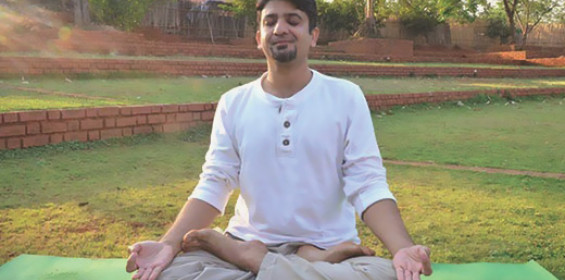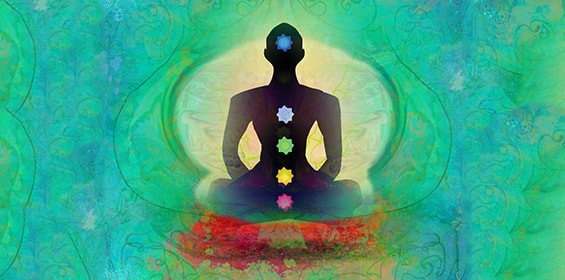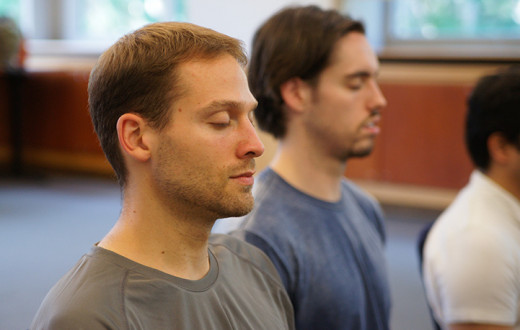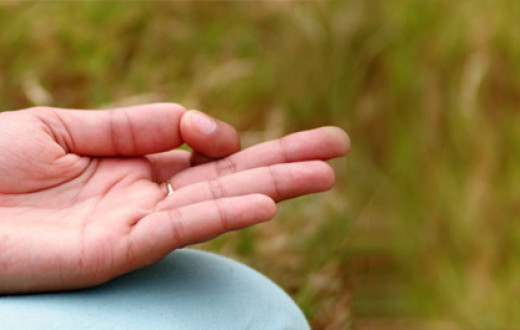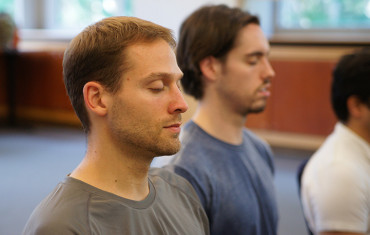Meditation while in common use these days, its meaning can be quite abstract for a beginner. The connotations attached with meditation generally are relaxation, stability, focus, and arguably the word religion as well.
So, what really is meditation?
“Meditation is the way to take deep rest and be alert and conscious at the same time! It is the skill to calm the mind and get in touch with your inner joy.”
– Gurudev Sri Sri Ravi Shankar
Meditation is not about becoming a meditator or a spiritual or religious person. Meditation is simply a training of the mind; training the mind to be present in the here and now instead of running after mental chit chat, emotions and desires. It is a training to shape or transform the mind. It’s not a training in constriction and hard concentration, rather it’s the opposite. It’s about letting go of all efforts, be open as the sky, and rest your body, speech and mind in a natural state which is innately present. It is just like learning any other skill. It’s a practice, and like any other skill - be it learning to play a guitar or football - the more you practice the better you will get at it.

Why practice?
Just like we brush our teeth everyday twice a day for our dental health, we should meditate at least twice a day for our mental health. If you’ve ever meditated even once in your life, you can feel the first-hand benefits of meditation. Otherwise, intuitively as well, we’ve all heard about the life-changing experiences of people when they began meditation. It’s been scientifically reported and experienced almost unanimously, that meditation brings an immediate sense of relaxation and clarity which can be felt throughout the day.
People most generally practice meditation to either reduce their stress levels, improve their relationships, or find a new meaning in life. Whatever be the reason, there is a place for everyone in meditation. No wonder the who’s who of the scientific community is studying it. In a study, researchers found meditation helped ease symptoms of depression, anxiety, and pain related to stress. According to another study, people who meditate have lower levels of cortisol, a hormone associated with physical and emotional stress. More studies found that meditation has also been shown to improve sleep quality and, for those with chronic pain, increase pain tolerance.

Why don’t we practice?
Isn’t that the key question to be asked? Despite the plethora of benefits being common knowledge now, and despite many of the meditators having first-hand experienced the positive changes, why aren’t we regular with our practice?
So, here are top 5 reasons why we don’t meditate
a) “It’s too hard, and I don’t feel calm” – Every session has to have a strong foundation of relaxation. If you’re skipping that, you will trap yourself as if you’re caught in a spider’s web. Be at ease, be loose, and be gentle! Surrender your muscles to gravity and keep relaxing throughout the session without losing the clarity. It’s true there will be some sessions that will not be as great as others, but stick at it. It might look chaotic, but the progress graph of meditation moves in an upward direction towards happiness.

b) “I don’t have time” - Think of all the activities you do during the day, and then list down all the unproductive ones. Maybe you can spend less time on social media, TV and other mundane entertainment sources. We all have time. Two 20 minute sessions per day, one in the morning, one in the evening doesn’t sound much really. Especially when we know that these sessions will add more time to our day by adding more mindfulness.
c) “It’s so boring” – The experience of silence, stillness, peace and clarity may not be equivalent to the gross entertainment that we get from loud music and movies. The joy in meditation is subtle. However it grows. The more patience and openness we bring to our practice the more joy we get. Ask any experienced meditator, with time, your motivation to practice will become the fun you get in it.
d) Spiritual sloth – Because it’s better than writing “I am feeling lazy”. For many of us, if we meditate properly on the reason why we don’t meditate, this reason will come on top. Underneath all the excuses we make up for not meditating lies laziness. This is the same laziness that prevents us from waking up on time, exercising every day, eating healthy, etc. How do we get out of spiritual sloth? First answer is simple. Just stop it. Stop being lazy. Second is to meditate more. The more you meditate the less lazy you will be. Don’t believe us? Try it for yourself. How about you meditate for 15 minutes now? Here

e) “It’s a waste of time” – One says that for two reasons. Either there is too much expectation to get the results too soon and hence, there is disappointment. Or the in-built impulse kicks in that sitting and doing nothing is a waste of time when one can go out in the world and talk to people, work, read, or watch a movie. For the former, be mindful that setting high expectations is a foundation for failure. Approach your sessions without wanting anything from it, surrendering all hope and fear. For the latter, it’s not your fault. We’ve all grown up in this go-out-and-do-something world, that sitting with your mind seems like a waste of time. However the best gift you can give someone or something is your attention. The more attention you bring to a certain activity or a person, the more meaningful your experience with that engagement would be.
Someone once asked Gurudev Sri Sri Ravi Shankar this question:
Gurudev, why do we meditate?
Gurudev answered:
“Are you asking me why you should meditate? Let me ask you, why should you sleep? Why should you study? Why do you want entertainment? Why do you want to be healthy? One can live anyway, have you thought about it? Why do you want to be happy? You can exist anyway, being happy or unhappy.

